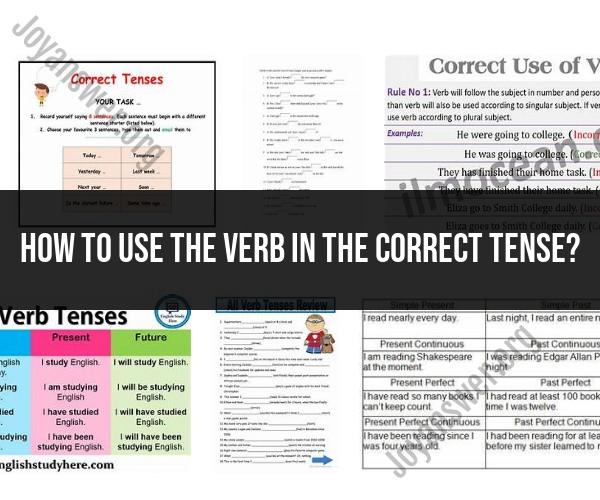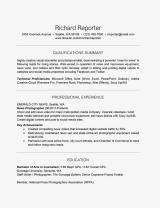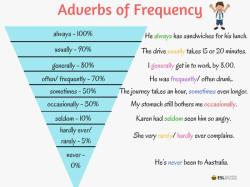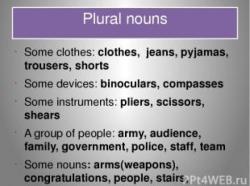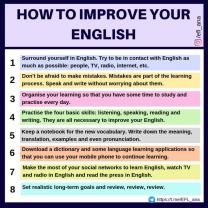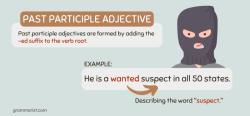How to use the verb in the correct tense?
Using the correct verb tense in English is essential for clear and accurate communication. Verb tense indicates when an action or event took place in relation to the present, past, or future. Here are guidelines and examples on how to use verb tenses correctly:
1. Present Simple Tense:
- Use the present simple to describe habitual actions, general truths, or regular occurrences.
- Example: "She eats breakfast every morning."
- Example: "The Earth revolves around the sun."
2. Present Continuous Tense:
- Use the present continuous to describe actions happening now or around the present moment.
- Example: "I am writing an email."
- Example: "They are studying for the exam."
3. Present Perfect Tense:
- Use the present perfect to express actions or events that happened at an unspecified time before now, emphasizing their relevance to the present.
- Example: "I have visited Paris several times."
- Example: "She has just finished her homework."
4. Past Simple Tense:
- Use the past simple to describe actions or events that occurred and ended in the past, often with specific time expressions.
- Example: "They watched a movie last night."
- Example: "He traveled to Europe last summer."
5. Past Continuous Tense:
- Use the past continuous to describe actions that were ongoing in the past at a specific point or during a period.
- Example: "She was reading a book when the phone rang."
- Example: "It was raining all day yesterday."
6. Past Perfect Tense:
- Use the past perfect to express actions that were completed before another past action or point in time.
- Example: "She had already eaten when I arrived."
- Example: "By the time I got there, they had already left."
7. Future Simple Tense:
- Use the future simple to describe actions or events that will happen in the future.
- Example: "I will call you tomorrow."
- Example: "She will start her new job next month."
8. Future Continuous Tense:
- Use the future continuous to describe actions that will be ongoing in the future at a specific time.
- Example: "They will be having dinner at 7 PM."
- Example: "I will be working on the project all day."
9. Future Perfect Tense:
- Use the future perfect to express actions that will be completed before a specific future point or event.
- Example: "By the time you arrive, I will have finished my presentation."
- Example: "He will have graduated by next year."
10. Conditional Tenses (e.g., First, Second, Third Conditional):
- Use conditional tenses to express hypothetical situations, possibilities, or unreal conditions.
- Example (First Conditional): "If it rains, I will stay home."
- Example (Second Conditional): "If I had more time, I would travel more."
- Example (Third Conditional): "If he had known, he would have come."
11. Imperative Mood:
- Use the imperative mood to give commands, make requests, or offer suggestions.
- Example: "Please close the door."
- Example: "Let's go to the park."
Remember that consistent and appropriate verb tense usage is crucial for effective communication. Pay attention to time expressions (e.g., now, yesterday, tomorrow) and the context of your sentences to choose the correct tense. Practice and familiarity with these guidelines will help you use verb tenses accurately in your writing and speech.
